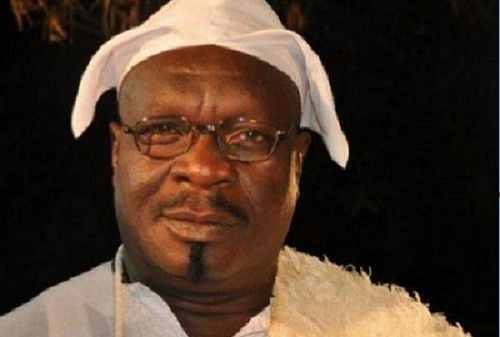BY ABIODUN SHOMOYE
Known for tactical disappearance when mostly needed and vehement aggression when extorting drivers, nothing defines misplacement of priority better than men of Nigeria’s Police Force (NPF). Their expected responsibility is not too difficult to comprehend; protect law and order, but Nigeria police officers have for years proven they are not ready to get that alone wedged in their brains, they’ve therefore found another angle to their statutory role. I don’t know how true this is, but it’s a general saying in the country; embark on a visit to a police officer’s house and you’ll be welcomed by “what did you bring for me and my family”, a visit to one’s house by a police friend will end with “what do you have for me to take home”—it’s that bad.
A brief point of correction. I won’t overgeneralise and label the entire system as bad. There are still good eggs in the police system, which I must commend their patriotisms but the reality is appalling, the bad ones apparently out shadows the good ones, two or three out of fifty is insignificant and mathematically negligible.
At a point in time, you will be left with no other option than to wonder if there exist a communication link between the Abuja office of NPF and her wings moving from states to local government areas and finally to local settlements. If actually there is, the reason(s) a police officer will still violate orders from Abuja office is unfathomable. Sadly, a good percentage of them do not know the name of the inspector general of police. That needed to be mentioned too.
Advertisement
Even when he/she doesn’t know the name of his/her boss, once on the road in most times not surprisingly dirty, rough, and unattractive black kits with outdated and tattered beret, if not complemented with rubber footwear (a.k.a Yar’adua), assumes a position comparable to that of Idi Amin, giving orders one must obey if one has something tangible to do in life. Their unappealing mode of dressing might be a topic of another day. Oh, lest I forget, sometimes some of them pay Iya Sikira o ni paraga (local alcohol seller) a visit before resuming duty, to shack up their body system, a necessary cause to most of them. Pathetic.
A quick suggestion before I continue, NPF needs to redesign the uniform, there is an urgent need to remove pockets from their uniform. This will go a long way in giving road users some form of relief, certainly.
To most Nigerians, news of NPF men seeing an economic angle to their duties is stale. New IGPs, new strong warnings but none has yielded a positive result, instead, there is always a direct response from our officers to any economic development. From days of twenty naira, to fifty naira and now to hundred naira and possibly two hundred naira considering the body language of Nigeria’s economy, you have to give it to them. This trend can better be analysed by a public transport driver, at least they are at the receiving end — this used to be my thought, just to be disappointed by a driver who told me police-settlement-fee is put into consideration when the cost of transporting is to be decided by the union in charge, that was when I realised that these people are extorting my poor self too.
Advertisement
Aside from this negative attributes, their posture on the road looks impressive at first but end up being depressive or funny — depending on one’s state of mind. Standing gallantly with loaded but most times rusty gun rolled round their necks, you’ll think one serious security personnel is standing until you see one human hand forming curve-like shape, indirectly saying Oga drop something or an unsolicited handshake that must be complimented with naira note. Failure to obey the message from the hand can result in verbal war if not physical.
At the receiving end, there are two major likely victims; the private vehicle drivers and the public transport drivers.
The former in most cases are educated working class Nigerians. This gives them the zeal to stand their right, which in most cases cost them their time, and no one goes scot free in this battle. They might not pay in cash but surely, they’ll replace the cash with their useful time.
The latter are the main target, mostly dominated by the less privileged (education wise), who are unaware of their rights, not ready to let go of their time (time na money) or scared of the uniform. They represent the lower class according to social hierarchy of the country, often beaten by the economic hardship, they work for primary purposes of feeding, sheltering and to be able to patronise uncle Uche, the over counter seller, in the case of medical breakdown. Their plight sometimes extend beyond meeting those primary purposes, they’re also confronted with the challenge of paying back huge charges to their respective car owners, daily or weekly depending on the stipulated agreement. Those are just a little of what average Nigerian public transport drivers go through. To now imagine a salary earner extorting this category of people is heartbreaking and worrisome, to say the least.
Advertisement
I sincerely hope the last warning by the IGP will go a long way. To add up to the IGP’s warning, I would have loved to initiate a nationwide protest against this menace or continue raising other issues in this piece, but the fear of having a #free attached to my name on various social media platforms has limited me and left with just one question; who will remind our police officers that they’re on salaries? Definitely not me!
Abiodun Shomoye tweets via @AbiodunShomoye.
Add a comment





